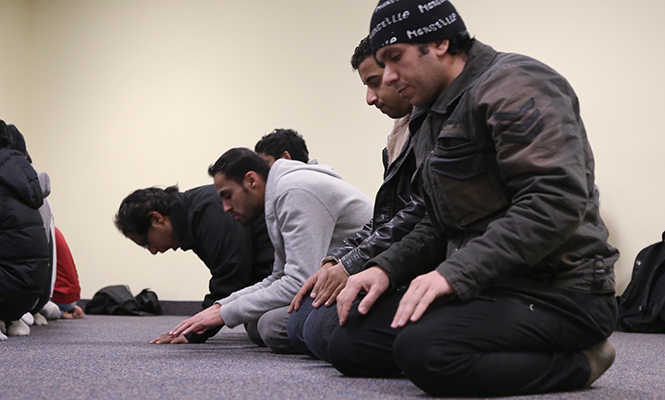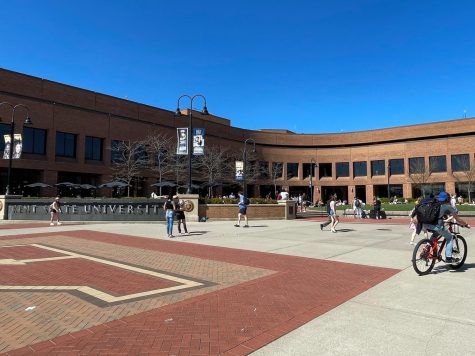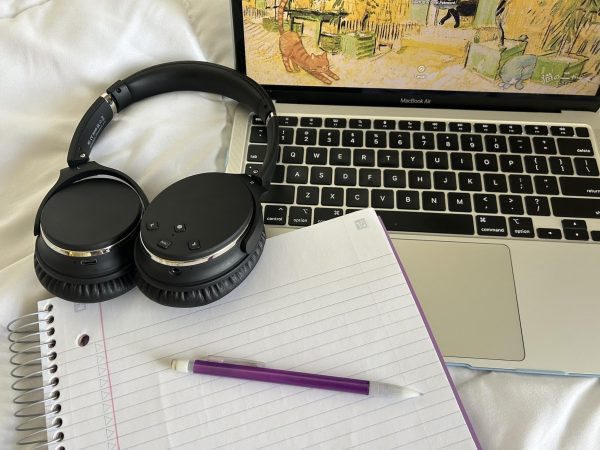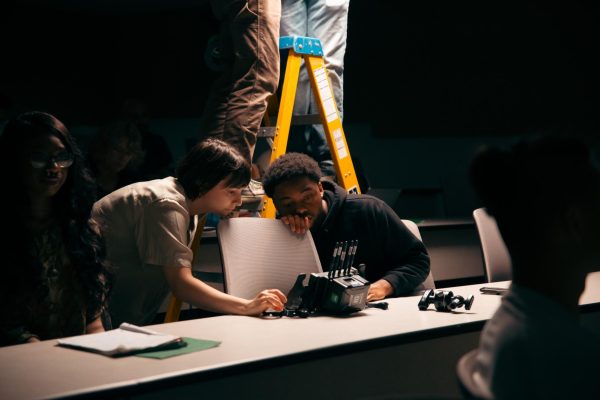Muslim students, faculty feel underrepresented on campus
Members of the Muslim Student Association pray in the Student Center November 15, 2013. The act of kneeling and having your forehead, nose, both hands, knees and all toes touching ground is called ‘Sujud’ which gives one a direct connection to God.
March 11, 2014
While other religions on campus get lots of attention, some Muslims say they feel neglected. Muslim students and faculty members at Kent State say they feel they are the most underrepresented people on campus.
“Generally in America, Islam is overlooked,” said Mahbobeh Vezvaei, a mathematical science professor at Kent State who is one of the Muslim advisers for the Muslim Student Association. “We are absolutely overlooked in Kent also. Look at how much is covered for the Jewish religion, and look at how much is covered for Islam. We have our own holidays, and no one covers them.”
Vezvaei said that politics and the media only look at the bad about Islam and blames everything that goes wrong on Muslims. She feels that this is part of an agenda in which the media are told to depict Muslims in a bad way.
Vezvaei feels that attitudes towards Islam on campus between students and faculty are different. She said the students think more like the media because they have less experience and are younger, whereas the faculty have more education and is more involved, so they are not always swayed by what the media say.
Muslim student and junior political science major Elyse Claassen also feels that the media depict Muslims in a bad way and is concerned that the Student Center’s televisions show Fox News because it shows Muslims in a negative light.
“I grow more concerned knowing that now they show Fox News, and it used to be HLN,” Claassen said. “I’ll watch five minutes of it and turn away because they are heavily biased against Muslims; there is no way of getting around that.”
She was surprised that even though there are so many Muslim students on campus, they say they do not have enough food options that cater to their needs.
“I would like to be able to find kosher food on campus,” she said. “You would think there was some sort of option for us, even if it is just a small plate.”
Claassen says she has not personally been discriminated against on campus as a Muslim, but she has heard many stories from Saudi women who have been laughed at and called ninjas because they wear hijabs on their heads.
“One woman cried to me one day. She said these guys walked by her and pulled their scarves in front of their faces while laughing and pointing at her. They said ‘she doesn’t know enough English to know what we are doing’ but you can tell. It’s just so mean,” she said.
Eric Calor, says that while he is happy as a Muslim student at Kent state, he can see that in America Muslim women are discriminated against more because they wear hijabs or veils.
“The original purpose for the hijab is for modesty and to go unnoticed,” he said. “but here on campus, a woman wearing one will definitely stick out and can bring unwanted attention. That’s one thing people are always going to talk about; how the women are dressed and how they are treated,” he said.
He said that people think that Muslims treat their women bad but they are actually highly protected and loved within their religion, and are never forced to wear hijabs.
He thinks that the prayer space that is provided is too small, and that it would be great for Muslims to have some type of center on campus, like other religions do.
“It would definitely be nice to have something for Muslims,” he said. “The Kent mosque is very small and old; it’s probably been around for 40 years. There is something for everyone else, where is something like that for us on the campus?”
Claassen feels that what could help Muslims on campus the most is representation. She said that most times people just don’t understand much about the Islamic religion, and if there was more representation of Muslims, people would understand them more and be more sensitive.
“Unfortunately, we aren’t well-represented and people just don’t understand our faith. Even from those who have good intentions and aren’t bigots, they often don’t understand even the very basics of Islam,” she said.
“I really wish we could have more representation. I’d feel better knowing more people won’t think Muslims are weird or bad people.”
For more information Islam in Kent and Akron, go to http://www.isak.org/.
Contact Ashlyne Wilson at [email protected].
























